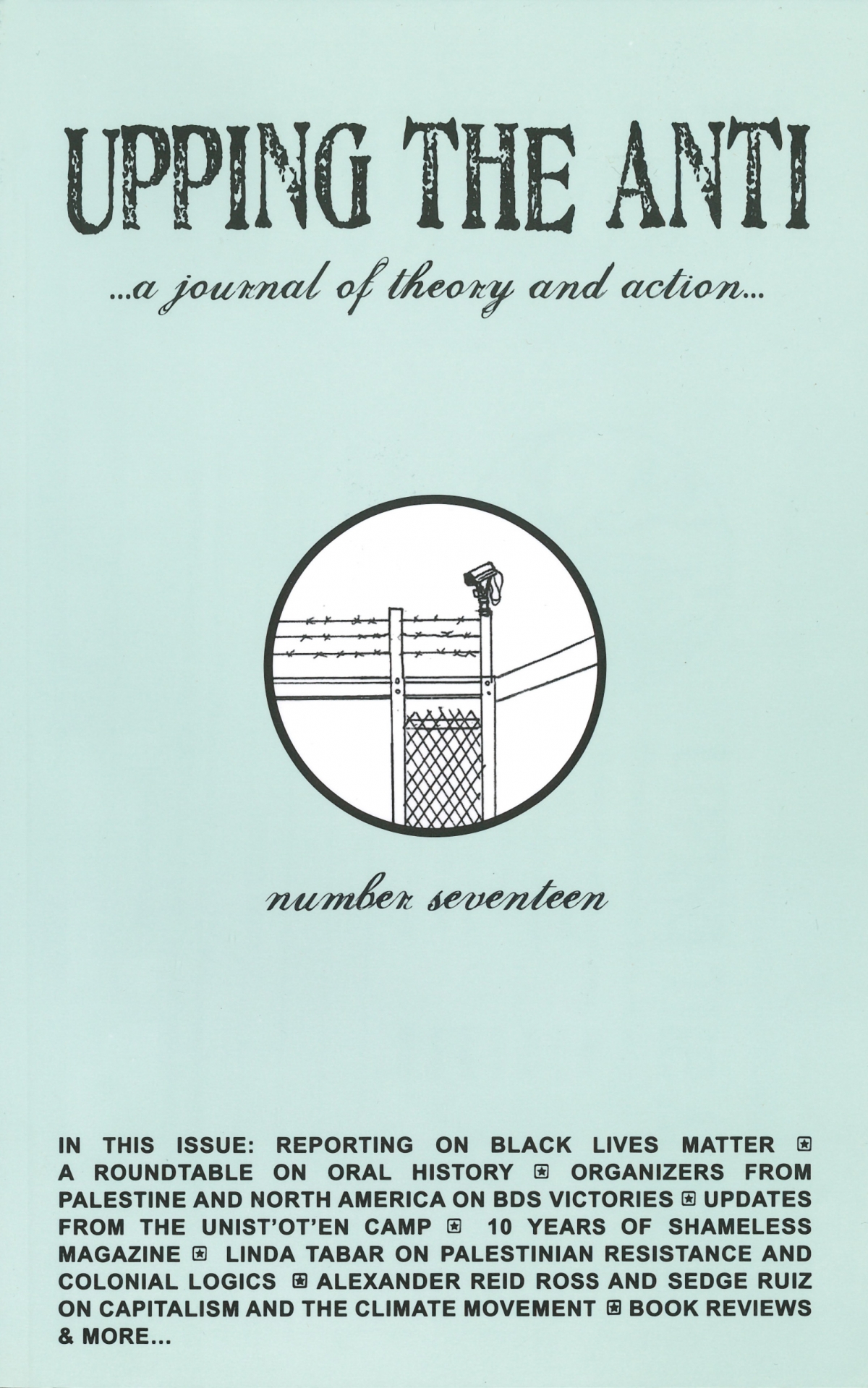Resurgence not Recognition
Red Skin, White Masks: Rejecting the Colonial Politics of Recognition
A review of Glen Sean Coulthard's Red Skin, White Masks: Rejecting the Colonial Politics of Recognition
My experience with Indigenous struggle has been through solidarity and support work as a member of migrant justice, anti-capitalist, and queer movements in Toronto. So when I was asked to contribute a review of Dene scholar Glen Coulthard’s book Red Skin, White Masks: Rejecting the Colonial Politics of Recognition, I wanted to do justice to what I feel is an important contribution to the struggles for decolonization on Turtle Island and to write the review in a way that focuses on the responsibilities of non-Indigenous radicals to engage with the important contributions offered in this book. I have made an active decision to relate to Coultard’s work from my own lived experience and knowledge rather than approaching it through judgment, argument, or debate. The teachings shared with me highlight the need to move away from antagonistic means of communication towards grappling with the content of ideas and their relationship to one’s position in the world. I’ve tried as much as possible to follow this practice in this review.
The release of Red Skin, White Masks comes at a critical juncture in the history of Indigenous movements against colonization on Turtle Island. In the wake of Idle No More and the intensification of land-based struggles for sovereignty by Indigenous peoples, both the settler state and settler society have been confronted with the actual and potential power of Indigenous decolonization and resurgence. Drawing on personal experience as a participant in the Dene Nation’s fight for self-determination and critical engagement with anti-imperialist, post-colonial, and anti-authoritarian theory, Coulthard undertakes the important, but difficult task of bringing Marx, Sartre, and Fanon into conversation with his Dene Elders as well as contemporary Indigenous theorists. He does this to challenge the notion that justice for Indigenous people can be found through the “recognition” and “reconciliation” offered by the Canadian state and settler society. The resulting work is an important contribution to Indigenous struggles for decolonization as it challenges readers to see both the limits of a politics of recognition and the potential of processes of Indigenous resurgence.
To read this article in full, purchase your copy of Upping the Anti here.

